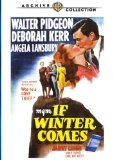| Reviews & Columns |
|
Reviews DVD TV on DVD Blu-ray 4K UHD International DVDs In Theaters Reviews by Studio Video Games Features Collector Series DVDs Easter Egg Database Interviews DVD Talk Radio Feature Articles Columns Anime Talk DVD Savant Horror DVDs The M.O.D. Squad Art House HD Talk Silent DVD
|
DVD Talk Forum |
|
|
| Resources |
|
DVD Price Search Customer Service #'s RCE Info Links |
|
Columns
|
|
|
If Winter Comes
"Oh, wind, if winter comes,
Can spring be far behind?"
Unreservedly square, ludicrously polite...and wholly entertaining. Warner Bros.' own M.O.D. (manufactured on demand) service of hard-to-find library and cult titles, the Archive Collection, has released If Winter Comes, Metro-Goldwyn's 1947 tasteful weeper based on an early 1920s bestseller by A.S.M. Hutchinson, and starring Walter Pidgeon, Deborah Kerr, Angela Lansbury, Janet Leigh, Binnie Barnes, and Dame May Whitty. One of those idealized, gentile English melodramas that M-G-M studio head Louis B. Mayer adored, If Winter Comes isn't as well known today as its more famous antecedents (certainly 1942's Mrs. Miniver), and its artificially manipulated moralizing will no doubt cause consternation for today's aggressively silly. However, that cast is a powerhouse, the production is super M-G-M glossy, and melodrama fans will sniffle approvingly right through to the end. A vintage trailer is included in this sharp-looking black and white transfer.
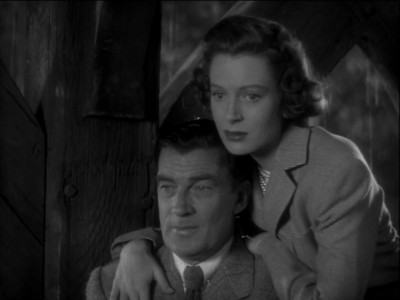
Quiet, peaceful Penny Green village, England, 1939. School text book author and editor Mark Sabre (Walter Pidgeon) leads a seemingly contented, uneventful life...but unforeseen events and powerful, once-submerged emotions are about to buffet his settled existence. Having loved and then lost soulmate Nona Tyber (Deborah Kerr) several years back, Mark is now married to Mabel Sabre (Angela Lansbury), a cold, appearances-obsessed gossip who believes herself to have finally purged Mark of any of his remaining passions. However, the return to Penny Green of Nona, who is married to wealthy social gadfly (and inveterate gambler) Tony Tyber (Hugh French), causes calculating consternation to Mabel, who wishes to push Mark towards Nona, as much to prove her suspicions about his lingering feelings for Nona as for any "test" about Mark choosing her. Of course, Nona and Mark can't hide their feelings from each other...but they can from everyone else, with noble British stiff upper lip self-sacrifice the order of the day when events, large and small, conspire against the couple's second chance at love. Mark's solicitous, exceedingly decent, moral approach to his life, however, will spur his downfall in Penny Green when young acquaintance Effie Bright (Janet Leigh) becomes pregnant by her since mustered-out young lover/service man. Effie, spurned by her religious zealot father (Rhys Williams), turns to kindly Mark for help in her hour of need, and he obliges―a move interpreted by the town, and in particular Mark's disgruntled employer, Mr. Fortune (Reginald Owen)―as a decidedly dangerous one.
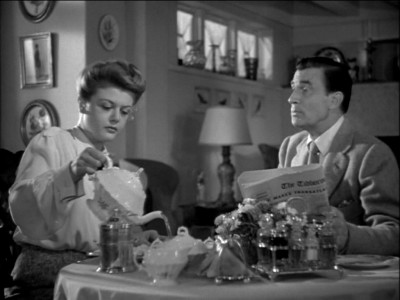
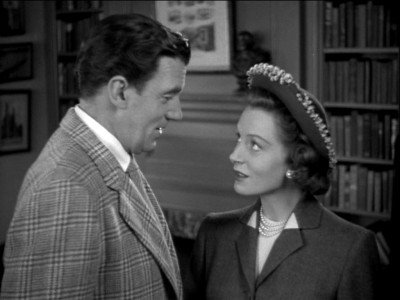
Based on the number one best-selling novel of 1922, according to a few sources I read, If Winter Comes was considered by many big filmmakers as a potentially "important"-enough project that it weathered several false production starts over the years. 20th-Century Fox's whiz kid producer David O'Selznick first bought If Winter Comes as a suitably romantic vehicle for Vivien Leigh and Laurence Olivier in 1939 (with his Rebecca star Joan Fontaine and Gone With the Wind co-star Leslie Howard also considered for the leads). The project was scheduled for a 1940 start, but then abandoned by the famously fickle O'Selznick (I'll bet script troubles...) before Selznick sold If Winter Comes to British independent producer Alexander Korda. By 1943, Korda thought the weeper would be a perfect re-teaming of Goodbye, Mr. Chips' co-stars Robert Donat and Greer Garson, but first Donat and then Garson dropped out, and by 1947, Louis B. Mayer's new find (and let's face it: fading Garson's "replacement" at the studio), Deborah Kerr, was signed on to co-star with Mrs. Miniver lead, Walter Pidgeon, with Victor Saville at the helm.
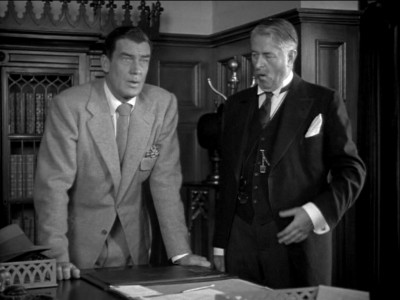
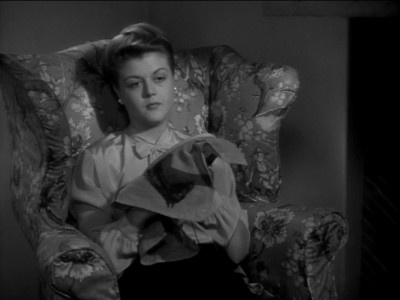
I've never read If Winter Comes, so I have no idea what has been changed from or added to the source material in heavyweight screenwriters Arthur Wimperis' (The Private Life of Henry VIII, The Four Feathers, Mrs. Miniver, Random Harvest) and Marguerite Roberts' (Escape, Honky Tonk, Dragon Seed, Ivanhoe, True Grit) script. However, excluding the faith that so many producers over the years had in the story, and the obvious care (i.e.: money) that M-G-M put into casting and mounting it, one can't help feeling that something was excised in this cinematic translation, with a telescoping of characters and events that serves brief-but-satisfying melodrama conventions, but which possibly shortchanged If Winter Comes from being a more telling, complex movie (interestingly, the back of the DVD case incorrectly clocks the running time at 119 minutes, rather than the actual 97 minutes. Could this be info from an original, longer first cut?). Characters who somehow seem integral or of great importance to the central characters are brought on and off without much context, with Whitty and her son Green the most conspicuous examples (her presence is critical for a plot development, and she seems very important to Pidgeon...but we're never told why). We get only the vaguest of sketches as to why Pidgeon and Kerr didn't get together in the first place...and even less about how he landed Lansbury (or more correctly: how she landed him). We don't really know how Pidgeon fits in with his publishing/editing/writing work, or how he managed a contract that disallows any firing of any kind except on moral grounds (and we certainly don't hear anything but murmurs about his "socialist" viewpoints in his editorials―courtesy of avowed Communist Roberts, surely―Mayer no doubt saw to that). And we know next to nothing about Kerr's marriage to Tony (he's broke? He's not broke? He's snagged her how? He's an aristocrat? An opportunist?). Perhaps all of this was more fully explored in Hutchinson's novel.
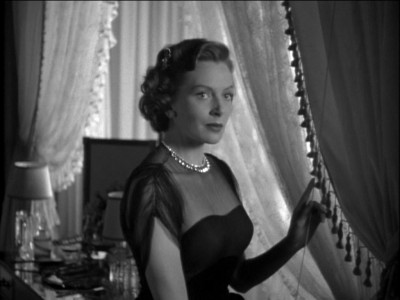
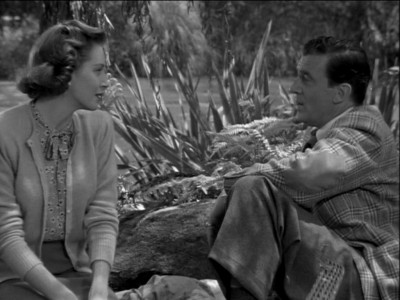
Of course, with a glossy M-G-M melodrama like this, fully-delineated characters and their motivations aren't always necessary for the movie to succeed with the audience: the gently suffering, handsome actors, the carefully-appointed settings, and a swift series of coincidental romantic reversals are enough to please in their own right. And If Winter Comes pulls those low-expectation aims off quite nicely, with the sheer force of M-G-M's patented slickness overpowering any nagging questions the viewer might have about the movie's rigged scenario and the characters' seemingly outdated motivations. Viewed through today's more self-centered culture, I don't see how most modern viewers are going to buy If Winter Comes' central core: two selfless lovers denying themselves happiness in the service of not hurting others―others whom the couple don't even love. And, once their path to love is clear, after great trial and tribulation, they maintain their silence (concerning a critical plot development that nearly destroys Pidgeon) and decide to suffer without "clearing" Pidgeon. Maybe (okay...almost certainly) that kind of thinking only existed in the movies (and that's precisely why it's so appealing as the stuff of romantic daydreams), but today's audiences are so much more cynical and ironic in their attitudes (especially towards love affairs) that it's far more difficult to divorce those attitudes in this context. When Kerr surprises Pidgeon with a picnic, with her eventually ignoring her resolve to stay friends-only, Pidgeon agrees...as long as she understands they'll be taking their happiness "at the expense of others." This of course stops her, a move that many viewers today (and not a few contemporary critics back then) would take as silly or even humorous―which obviously wasn't the intention of the filmmakers at the time.
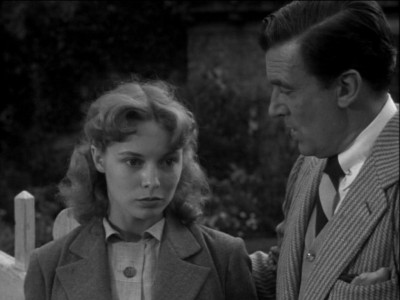
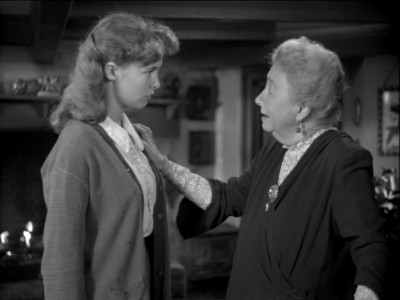
If Winter Comes works best then as an admittedly synthetic romantic concoction―more twisty, coincidental tearjerker than a "serious" movie―one should enjoy for its expert manipulation of its shallow (but highly enjoyable) nonsense. The rap on Walter Pidgeon was that he could be stiff and bland at times, but I've always enjoyed his reserved good manners. Apparently a favorite of Louis B. Mayer's (probably in no small part because Pidgeon never gave him any guff), he's a perfect actor for this kind of vehicle, able to get across the character's sweet, gentle, moral nature while still inspiring romantic flights of fancy with his solid handsomeness. As for Kerr, she isn't asked to do much here, but that cultured, ladylike radiance she routinely gave off―with the promise of untapped carnal passion lying below―is on full display here (she was used to much better advantage in her two other 1947 releases: the highly enjoyable drama from M-G-M, The Hucksters, with Clark Gable, and that bona fide masterpiece, Black Narcissus, from Michael Powell and Emeric Pressburger). Dame May Whitty has a lovely (if rather inexplicable and arbitrary) death scene that must have brought tears to the eyes of mother-worshipping Mayer, while young, gorgeous Janet Leigh proves to be quite credible―with the exception, perhaps of that come-and-go English accent―in her role as the ill-fated Effie (a victim of the Production Code as much as convenient plot machinations).
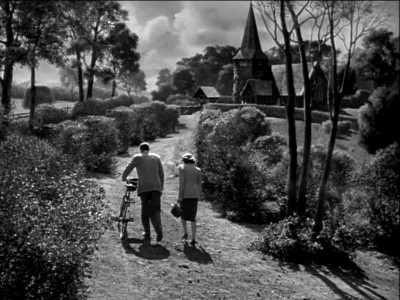
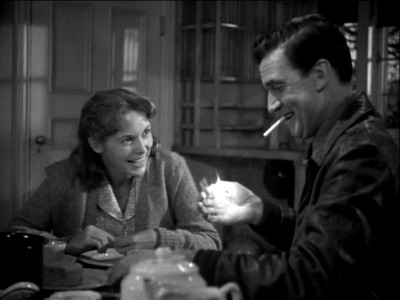
Angela Lansbury, brought over specifically by director Saville after he saw her performance in If Winter Comes producer Pandro S. Berman's classic, The Picture of Dorian Gray, creates the movie's most vivid (if unpleasant) character. This strange, cold wife who is so self-satisfied with her own manipulations that she would purr to Pidgeon after ordering him to see Kerr, "I'm an extraordinary woman, aren't I? That's why you appreciate me," is a rather fascinating villainess who departs too quickly in the movie for its own good. Whether brusquely putting "the help" in their places, or emasculating fearful Pidgeon, or showing her utter contempt for the world outside her locked down tight world ("Have you seen the news about Poland?" Pidgeon asks a card-playing Lansbury, who icily responds, "Mark...this is serious bridge."), Lansbury's Mabel is a frosty obsessive devoid of any residual audience sympathy. It's too bad her character couldn't have been more fully explored...but then, that's not within If Winter Comes aims. The surface effect of her adept performance, though, is more than enough to keep our attention...as can be said for all aspects of If Winter Comes.
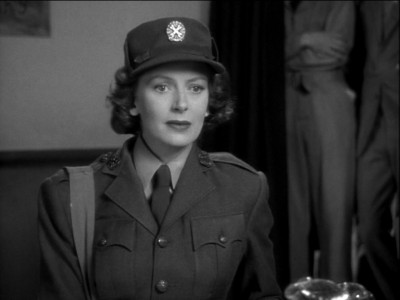
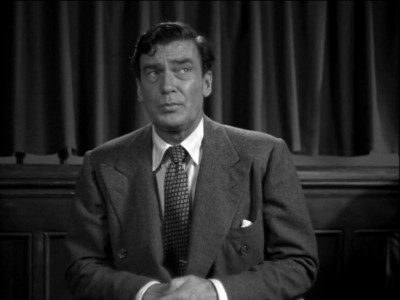
The DVD:
The Video:
The full-screen, 1.37:1 black and white transfer for If Winter Comes looks quite good, with a sharp, sharp image, solid blacks, and only minor print damage (occasional scratches, white specks).
The Audio:
The Dolby Digital English split mono audio track is relatively clean (low, unobtrusive hiss); no closed-captions or subtitles.
The Extras:
An original trailer is included here.
Final Thoughts:
Contrived, certainly, coincidental, surely, and suspect motivationally...and that's precisely why we melodrama lovers will enjoy it. If Winter Comes may have had loftier intentions, but either too much of the story was cut out in pre- or post-production...or it was never all that much good to begin with. Nevertheless, that dependable Mayer M-G-M sheen is on full display, the excellent actors are effective, and the conventions of the melodrama genre are met. And that's good enough. I'm recommending If Winter Comes.
Paul Mavis is an internationally published film and television historian, a member of the Online Film Critics Society, and the author of The Espionage Filmography.


|
| Popular Reviews |
| Sponsored Links |
|
|
| Sponsored Links |
|
|
| Release List | Reviews | Shop | Newsletter | Forum | DVD Giveaways | Blu-Ray | Advertise |
|
Copyright 2024 DVDTalk.com All Rights Reserved. Legal Info, Privacy Policy, Terms of Use,
Manage Preferences,
Your Privacy Choices | |||||||









